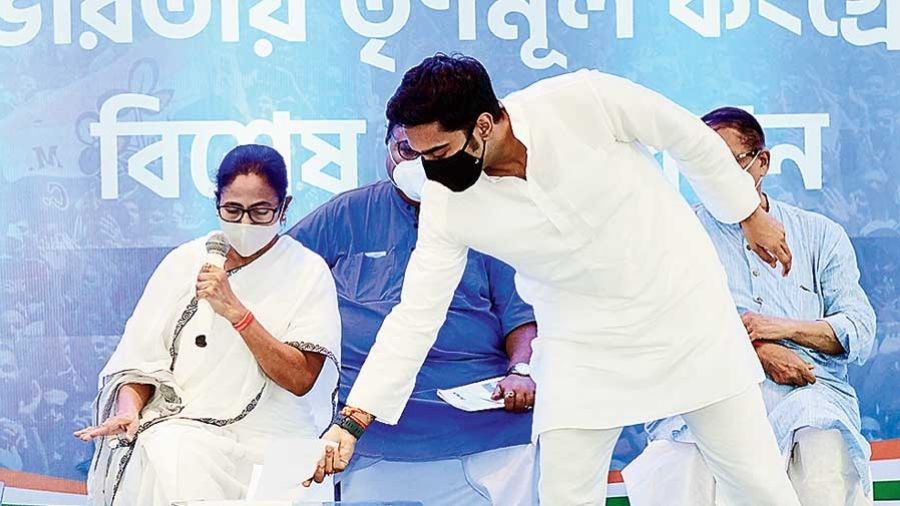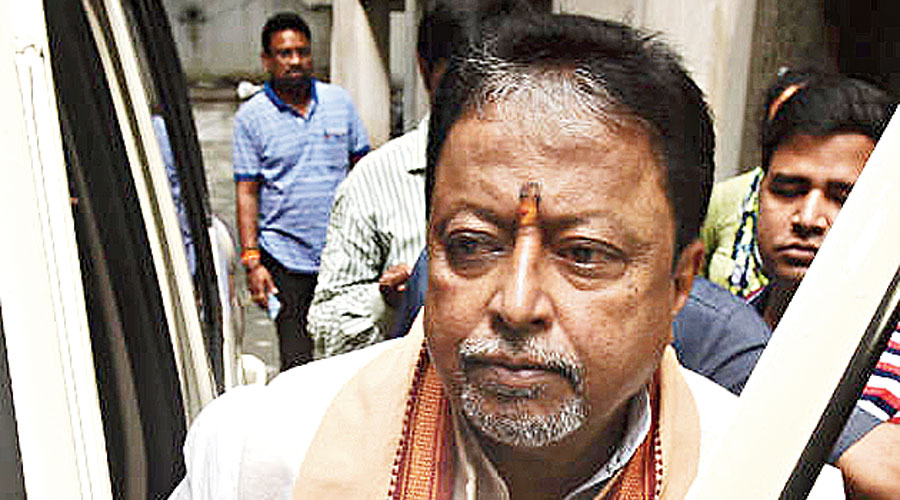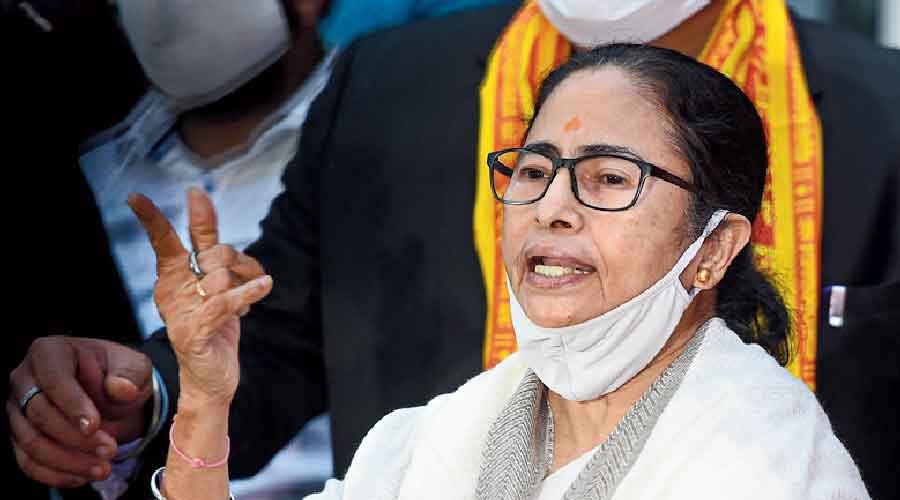TMC supremo Mamata Banerjee, who recently quashed a brewing internal rebellion with the iron-fisted rejig of the party's national working committee, established once again that she was the sole commander in her camp, and no one, including her heir-apparent Abhishek Banerjee, was fit to challenge her dominion.
In TMC's 24-year journey, the Bengal chief minister, who has earned herself the image of a gutsy leader, always made swift comebacks with greater ferocity as and when some leaders in her coterie revolted, and this time was no exception as she barely dithered to clip Abhishek's wings amid the internal strife between old guard and fresh blood.
According to sources in the party, the recent power struggle that had roots in her backyard, with the increasing demand for a definite retirement age and the 'one person-one post' policy, was aimed at phasing out the old guard to make space for young leaders handpicked by Abhishek.
A section of leaders claimed that junior Banerjee was "misguided" by political consultant Prashant Kishor and his I-PAC team, roped in to boost the party's prospects in elections.
The feisty TMC boss, in her bid to stave off the growing rebellion, quickly dissolved the national-level folios, and formed a new working committee with just 20 members, thereby effectively leaving her as the only person capable of calling the shots in her camp.
"Minimising the role of Abhishek and distancing I-PAC were necessary to end the discord in the camp. Mamata managed the entire thing with such a precision that the battle was won even before it started," a senior TMC leader, privy to the development, told PTI on condition of anonymity.

Mamata Banerjee with Abhishek Banerjee File Picture
Although Abhishek has been made a part of 20-member committee, it is mainly packed with her loyalists. An undertaking was also signed by party veterans and the Diamond Harbour MP, pledging their complete trust in the leadership of the Mamata Banerjee.
Party insiders feel the move was not just aimed at ending the power tussle; it would also give the TMC boss time to groom her nephew as her heir apparent.
Mamata's political journey, if analysed, goes on to show that internal rebellions have shaped her career in a big way over the years. In the mid-nineties, then Bengal Congress president Somen Mitra and Mamata had engaged in an inner-party struggle over the control of the state unit, but Mitra managed to retain his post.
The development became a turning point in her life and career as Mamata left the Congress shortly after to form the Trinamul Congress in 1998.
Ten years down the line, Mitra, too, joined the TMC and accepted Mamata as his leader. However, in 2014, he returned to the Congress and remained the party's state president till his death 2020.
After forming her party in 1998, Mamata had first faced rebellion when founding chairman Pankaj Banerjee quit the camp to return to Congress, just months after it was formed. Both had later set differences aside, and he retraced his steps to TMC.
He was made the Leader of the Opposition from 2001-2006. Subsequently, differences between the two cropped up again, following which he decided to quit politics.
The second major rebellion was recorded in 2001, when Ajit Panja, one of the founding fathers of the TMC, slammed Mamata over her decision to quit NDA over the Tehelka scam that had rocked the Union cabinet.
He was placed under suspension for dubbing Didi's decision to leave NDA and align with the Congress as "insane and politically immature". Panja unsuccessfully tried to form his political platform by breaking away from the TMC. In 2003, he returned to the TMC.
Soon after the TMC rejoined the NDA in 2003, Mamata got a whiff that his colleague and then MP Sudip Bandopadhyay was using his rapport with the BJP leadership to manage a berth in the Union ministry, and immediately expelled the leader for six years.
He, too, found his way back to the Mamata Banerjee-led party ahead of the 2009 Lok Sabha polls.
A significant revolt that had affected TMC's political fortunes was the one led by Subrata Mukerjee, who is often referred to as Banerjee's political mentor. He switched over to the TMC from the Congress in 1999 and became the mayor of Kolkata after the party won KMC polls in 2000.
In 2005, however, just ahead of the Calcutta civic elections, differences arose between the two, and Banerjee wanted someone else as the party's mayoral face.
Mukherjee and his loyalists deserted the party and formed a separate platform leading to TMC's defeat. He then joined the Congress.
Following a gap of five years, Mukherjee was back in the TMC, and was given a berth in the state cabinet. He remained a member in Mamata Banerjee's cabinet till his demise last year. Similar revolts were quelled by her in the years that followed.

Mukul Roy File Picture
As an ally of the Congress-led UPA-2, veteran TMC MP Dinesh Trivedi was made the railway minister in 2011 as Mamata took charge as Bengal's chief minister.
A year later, Trivedi's decision to increase passenger fare did not go down well with Banerjee, and she openly opposed it as "anti-people". She asked Trivedi to roll back the announcement, but he refused to oblige.
An infuriated Mamata got Trivedi replaced as railway minister by the then TMC general secretary Mukul Roy, who immediately rolled back the proposed hike. Roy, who was the unofficial number 2 in the party from 2011 to 2014, later fell out with Banerjee, following Abhishek's sudden rise through the party ranks.
He quit the TMC and joined the BJP in 2017, and was appointed as the national vice-president of the saffron party. In a U-turn after the assembly elections last year, Roy, having won polls on a BJP ticket, returned to the TMC and was termed by its leaders "as one of their own".
Mamata Banerjee forgives opponents when they surrender before her. But she never forgets. She is a fighter. The more you challenge her, the more powerful she gets," a veteran TMC leader told PTI.
Political analysts feel leaders like Mamata, who have achieved a cult status, never favour challenges within the camp.
"For leaders like Mamata Banerjee, the party revolves around her mass following. Those who challenged her never had a mass following like she does. Leaders may end up finishing their political careers, trying to corner her," political analyst Suman Bhattacharya said. Political scientist Biswanath Chakraborty claimed that the after-effect in case of Abhishek might be different, given the fact he is a part of the family.
"It seems Mamata Banerjee is not ready to hand over her party's baton to her nephew right now. She might want to groom him as a political asset. The baton will be handed over to Abhishek once she feels that all his threats have been politically neutralised and her nephew was ready to lead the way," Chakraborty added.










